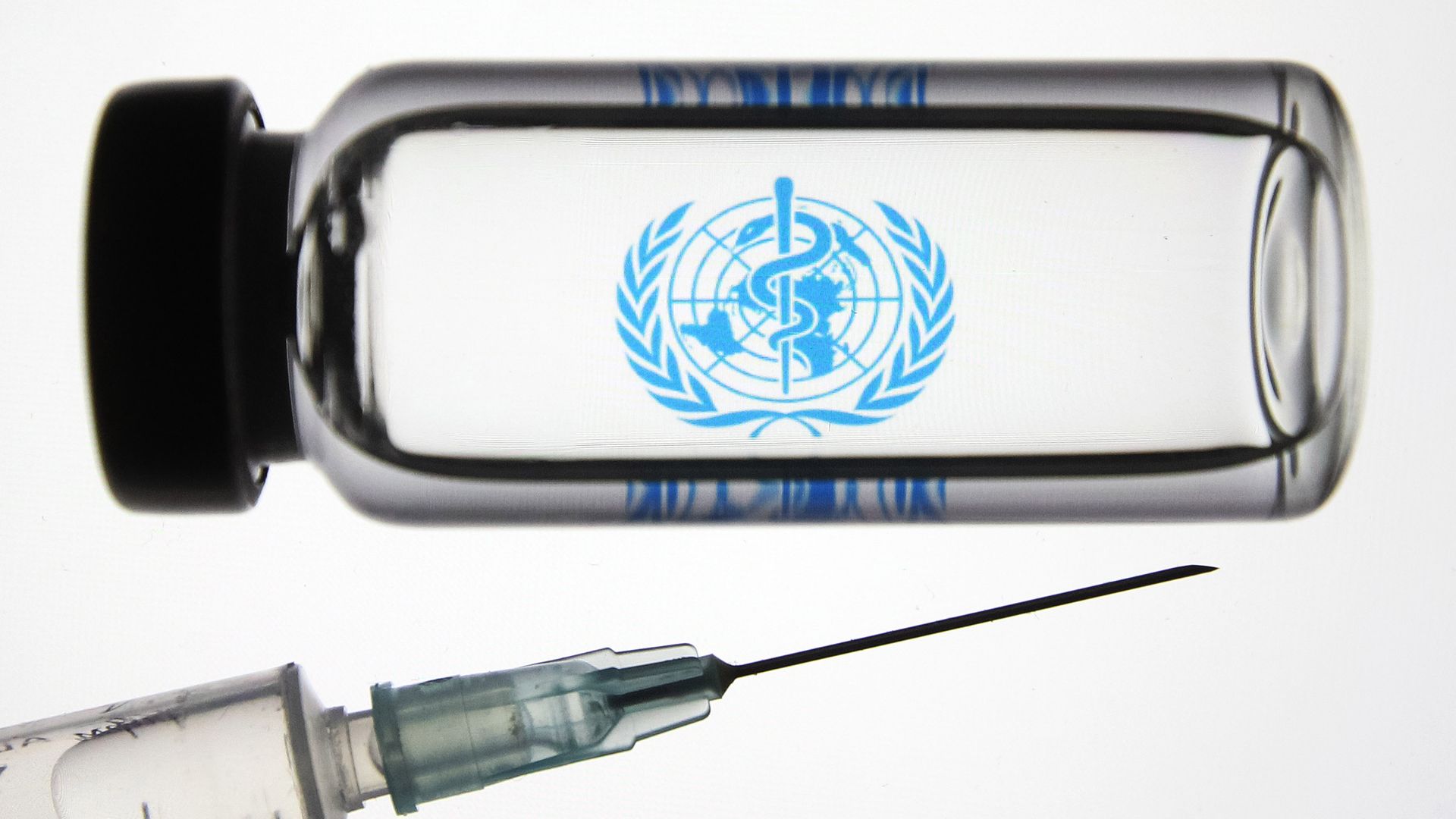Nov 27, 2020 - Health
WHO: AstraZeneca vaccine must be evaluated on "more than a press release"
Add Axios as your preferred source to
see more of our stories on Google.

A medical syringe and vial with fake coronavirus vaccine in front of the World Health Organization (WHO) logo. Photo Illustration: Pavlo Gonchar/SOPA Images/LightRocket via Getty Images
